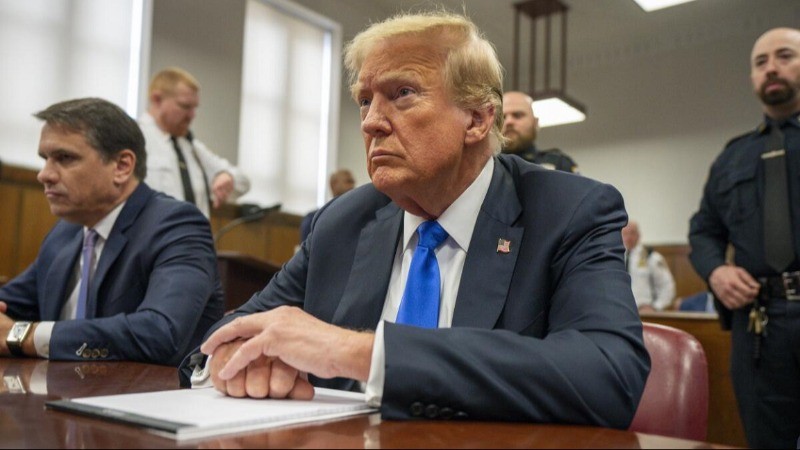
NEW YORK: In a big legal case, U.S. President-elect Donald Trump is scheduled to be sentenced on January 10, 2025, following his conviction on charges related to hush money payments. The sentencing will take place just ten days before his inauguration, creating an unprecedented scenario in American history.
Judge Rules Out Jail Time
Justice Juan Merchan, the presiding judge, has indicated that Trump is unlikely to face jail time. Instead, the judge suggested that a sentence of "unconditional discharge" might be the most practical solution. This means Trump would avoid incarceration, fines, or probation, allowing him to focus on his presidential duties.
A New York Judge Juan Merchan emphasized that imprisonment is not a “practicable” option given Trump’s age, 78, and his lack of prior criminal convictions. He also noted that Trump could attend the sentencing virtually, sparing him the necessity of appearing in court in person.
Legal Challenges and Delays
The case, which stems from allegations of falsifying business records linked to hush money payments made to a porn star, has faced significant delays. Trump’s legal team repeatedly sought to postpone sentencing, arguing it would interfere with the 2024 election and his presidential transition.
Following his election victory, Trump attempted to have the case dismissed entirely, citing presidential immunity and claiming that the charges would hinder his ability to govern. However, Merchan rejected these arguments, stating that dismissing the case would undermine the rule of law.
Harsh Criticism of Trump’s Conduct
Justice Merchan criticized Trump for his apparent disregard for the legal process. During the trial, Trump violated gag orders, accused the judge of bias, and even appeared to fall asleep in court. Merchan dismissed Trump’s repeated requests for his recusal, calling them baseless.
In his latest ruling, Merchan reaffirmed the jury's verdict, maintaining the conviction and highlighting the importance of upholding justice despite Trump’s status as President-elect.
Historic Implications
This marks the first time in the history of the United States that a former or President-elect has been convicted of a crime. Experts agree that the maximum penalty for Trump’s conviction—up to four years in prison—is highly unlikely to be imposed. The legal proceedings underline the tension between the judicial system and the executive branch, setting a new precedent in American governance.
What is the Hush Money Case?
The hush money case revolves around a controversial payment allegedly arranged by Michael Cohen, former lawyer to Donald Trump, to adult film actress Stormy Daniels. Daniels claimed she received the payment to remain silent about an alleged affair with Mr. Trump during the 2016 presidential campaign.
Testifying under oath, Cohen admitted to paying Daniels USD130,000 as part of the agreement. He also stated that the payment was made under Mr. Trump's instructions.
Trump’s Response
Trump’s spokesperson, Steven Cheung, criticized the case, calling it “lawless” and demanding its immediate dismissal. Cheung argued that the charges should never have been brought, asserting that they infringe upon constitutional principles.
Despite the legal hurdles, Trump is set to take office on January 20, 2025, with his criminal conviction intact. The case has sparked widespread debate about accountability and the limits of presidential immunity.
The president-elect’s legal defense has largely hinged on delaying proceedings until after the election. Trump managed to postpone trials in three of his criminal cases, and in the hush money case -- the sole instance where a verdict was reached -- he succeeded in delaying sentencing until after voters had made their decision. His decisive victory in November’s election further solidified his approach.
Trump might attempt to involve a higher court or even the Supreme Court to block the sentencing. However, Judge Merchan's remarks, suggesting that no significant punishment is likely for Trump, could weaken such attempts, making the sentencing appear procedural. Once sentenced, Trump would still have the option to pursue standard appeals to challenge the jury's decision in a higher court.